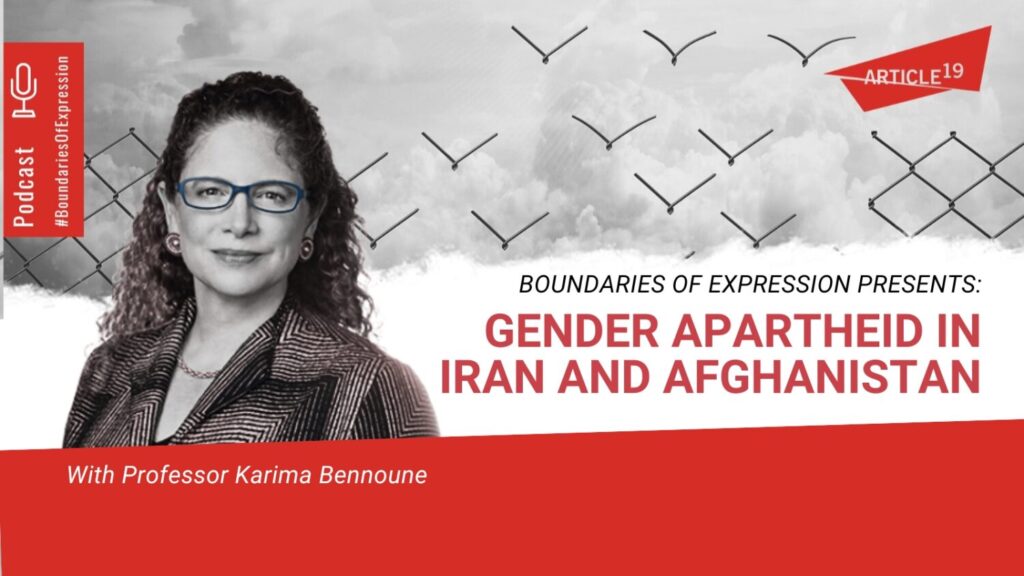This week we are marking Jhina Amini’s death, which sparked Iran’s largest uprising in decades and the Woman, Life, Freedom movement. As resistance continues, activists are urging recognition of “gender apartheid” as a crime against humanity. In ARTICLE 19’s latest podcast, Jo Glanville speaks with Professor Karima Bennoune of the University of Michigan about the campaign and why global action is vital.

This week marks the anniversary of Mahsa Jhina Amini’s death, an event that ignited Iran’s largest uprising in decades. Amini, arrested in 2022 for not wearing a headscarf, died after being detained by the morality police. Her death sparked the Woman, Life, Freedom movement, which drew millions into the streets across Iran and triggered solidarity protests worldwide.
Today, Iranian activists are at the forefront of a growing international campaign to have “gender apartheid” — the systematic oppression of women based on gender — recognised as a crime against humanity.
In the latest podcast for Article 19, journalist Jo Glanville speaks with Professor Karima Bennoune of the University of Michigan, former UN Special Rapporteur on cultural rights, about her efforts alongside campaigners from Iran and Afghanistan to ensure gender apartheid is included in a new UN treaty on crimes against humanity.
The discussion comes as the UN prepares to negotiate a new treaty on crimes against humanity — the first since the 1998 Rome Statute that established the International Criminal Court. Campaigners are pressing for gender apartheid to be written into the treaty so that states are obliged to confront it under international law.
Professor Bennoune argues that Afghanistan under Taliban control offers the clearest example of gender apartheid today. Women, she explains, are systematically excluded from every sphere of life — cultural, political, social, and economic — and subject to enforced segregation. This, she says, amounts to a “system of governance” that institutionalises oppression by one gender over another with the deliberate aim of maintaining that regime.
The conversation also considers Iran, where Amini’s death in custody sparked the Woman, Life, Freedom uprising. Bennoune stresses the importance of listening to Iranian women’s voices, noting that many leading defenders, including Nobel laureates Narges Mohammadi and Shirin Ebadi, describe the situation as gender apartheid. While she acknowledges that Iran differs from Afghanistan, she highlights examples of systemic exclusion — from women being barred from studying certain subjects to their exclusion from stadiums.
The podcast makes a compelling case for why codifying gender apartheid in international law matters: without recognition, one of the most entrenched forms of oppression risks remaining outside the reach of justice.
You can find the episode link here.

